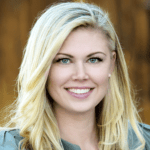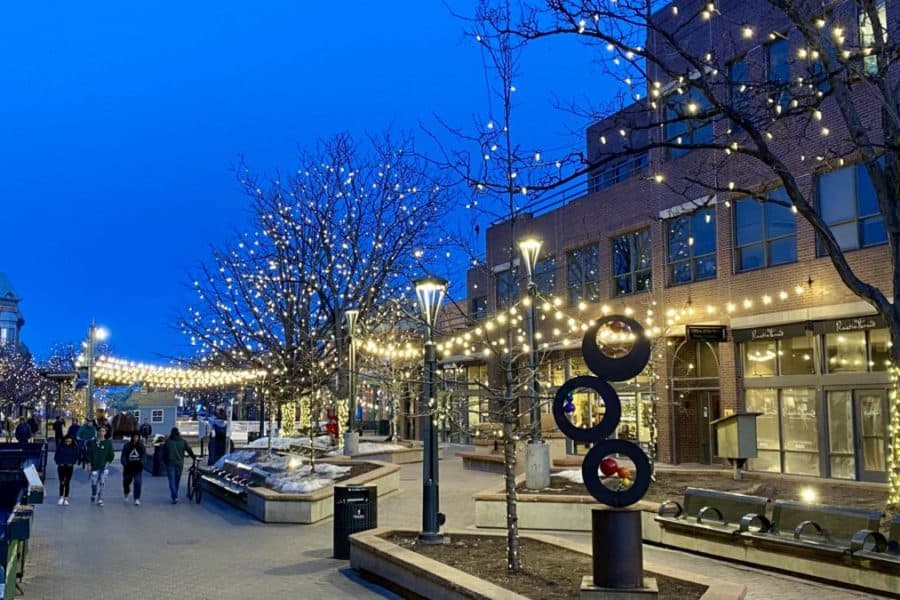Three years ago, two organizations committed to uncovering the secrets to healthy aging got their start on Colorado’s Front Range. The Colorado Longitudinal Study (COLS) was formed in Boulder to begin collecting biological samples and sociological data to fuel unprecedented research into the predictors and causes of disease. Just an hour north in Fort Collins, Colorado State University (CSU) was opening its new Columbine Health Systems Center for Healthy Aging where researchers from multiple disciplines would conduct research to understand when and why some people develop disease while others live healthy lives well into their 80s and beyond.

It’s only fitting that these two organizations should now come together to launch COLS first participant recruitment site. COLS plans to begin recruiting participants by the end of 2021, but the non-profit organization may launch earlier if there is an opportunity to partner with researchers investigating COVID-19.
“Our organization ultimately will recruit hundreds of thousands of Coloradans who provide biological samples annually along with comprehensive health, social, and environmental data more frequently,” says Phyllis Wise, PhD, CEO. “However, we recognize that our capabilities could be of value sooner on a more limited but urgent basis to help address the pandemic.”
When COLS starts recruiting participants, the Center for Healthy Aging will serve as the biobank’s first Engagement Center where participants will come to learn about the biobank, provide consent, and have biological samples collected.
Fort Collins Diversity Key to Selection
“There is a huge potential for the data that COLS will be collecting,” says Nicole Ehrhart, PhD, director of the center and professor of surgical oncology in the College of Veterinary Medicine and Biomedical Sciences at CSU. “There are very few longitudinal archives of biosamples for people across the lifespan. The longitudinal aspect is powerful because it will allow researchers to link changes over long periods of time with health events. COLS will collect an enormous amount of data on demographic, ethnicity, income, healthcare access, and hundreds of other data points that can be mined to find patterns that are otherwise not available.”
Beyond the interlocking missions, COLS selected the Center for Healthy Aging due to its location, says Meredith Guerrero, COLS chief operating officer who leads the participant recruitment and retention program.
“Fort Collins is a unique community that is a microcosm of Colorado,” she says. “It is a vibrant community where academia, high-tech industry, manufacturing, and agriculture intersect. As a community, Fort Collins is balancing growth and history, pushing into the future of industry and technology without losing its local charm. It also offers a wide diversity of people of all ages, income levels, education, and racial heritages.”
COLS participants will reflect the diversity of the state, which mimics much of the rest of the nation. Colorado’s population includes people from every age group, with a growing number of seniors, as well as geographic, racial, ethnic, and gender diversity. Limiting participation to one state will allow the biobank to collect enough data for researchers to examine health down to the neighborhood level, Wise says.
“COVID-19 is a good example of how researchers must be able to drill down to very local levels to accurately understand factors that impact health,” she says. “Researchers don’t know, for instance, why one group is more susceptible to contracting COVID-19 within the same urban area.”
Testing Initial Recruitment Processes
COLS will limit its initial recruitment in the first year to test its protocols and procedures. Each step of the initial process from providing consent to collecting the biological specimens will be analyzed to understand where processes and participant comfort can be optimized. Other tactics, such as recruitment and retention messaging, also will be tested and adjusted to ensure that COLS can meet its long-term goals, Guerrero says.
“We have visited and talked with many biobanks around the world to understand and incorporate best practices,” she says. “The UK Biobank helped us understand the need to start recruitment slowly to test and hone our procedures.”
Unlike many biobanks, there are no qualifications or restrictions for participants, except being a resident of Colorado. In fact, COLS plans to enroll participants without any current health problems or family history since these people are needed as much as participants with illnesses. “The key to our data will be tracking people before they develop disease so that researchers can look back in time to identify factors that cause disease or biomarkers that predict disease before symptoms ever show up,” Wise says.
Over the next year, COLS will be finalizing its recruitment plans in Fort Collins. We are interested in connecting with local business leaders, public health officials, and community organizations who can provide feedback on messaging, community outreach and more. If you are interested, please email COLS.

